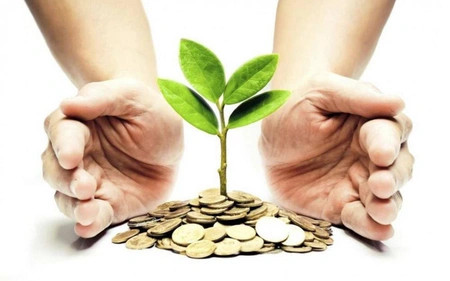Can money buy happiness?

What does money mean to you?
Personal finance is a topic that many people are concerned about. There are many Eastern and Western methods combined on social media to help people better manage their money. I think before delving into any principles or methods, you should clarify what money means to you. Because money is a more emotional and habitual issue than many people think. It reflects experiences or memories from childhood, your parents' relationship with money. Some people are born poor, so when they earn money, they tend to overspend to "compensate" for the impoverished days in the past. There are also people born in difficult circumstances who, when they become wealthy, tend to tighten their belts out of fear of losing money. Financial management tools will become less effective if we do not free ourselves from the constraints of deep-seated beliefs about money or the attachment of money to our own values.
Why should we talk about money?
The economy and operation of modern Vietnamese society are very different from 10 or 20 years ago. In the past 10 years, our average income per capita has doubled. After deducting the inflation rate, the income of Vietnamese people is increasing significantly, especially in urban areas. In the past 5 years, the proliferation of credit has helped many people achieve the dream of owning a house or a car. However, many people have very limited knowledge about the benefits and hidden risks of mortgage loans. Basically, the younger generation of families is solving more complex financial problems than their parents' generation. On social media, many people like to show off luxury bags, expensive new cars, or luxurious parties. Trends among young people like 'rich kids', where young men and women from wealthy families count how many hundred-dollar shirts or thousand-dollar pants they have, attract millions of likes. The trend of flaunting material possessions and the rapid spread of information on the internet increase envy, self-doubt, and materialistic desires for both adults and children in a society where many people are already anxious about comparing themselves to others. In the midst of material abundance and heaviness, it is even more necessary to sit down and talk about money.
Can money buy happiness? Many people believe that money is the root of evil, and they do not care about money. Only those who have experienced hunger and sleepless nights due to lack of money truly understand the phrase "no money, no food". Those who do not have to worry about money cannot understand why a young woman in her early 20s would risk her life crossing the border to England in a freezing container at -40 degrees, just for a better life. How many Vietnamese brides go to marry Korean or Taiwanese husbands, hoping to change their lives and those of their impoverished village. Poverty is a pain both materially and spiritually that can only be truly understood after experiencing it. A study from the University of Pennsylvania in the United States shows a positive correlation between income level and individual life satisfaction. Money helps them control their lives better and have the freedom to choose the life they desire, compared to those who struggle to eat every meal. However, the relationship between money and happiness weakens when this income level exceeds a certain threshold. People who earn more money have less time and face more pressures in life. As a result, at some point, they become less happy.
So how much money do we need to be happy?
If you have ever been to Mai village in Thailand or in France, you will see that the monks there do not earn money, yet they have an abundance of happiness. Of course, through the contributions of relatives and friends, they do not have to worry about basic survival needs like food or clothing. But this is an example that shows that people do not need too many material possessions to achieve happiness. If you remember learning about Maslow's hierarchy of needs somewhere, this is a pyramid that outlines the hierarchy of human needs. At the bottom of the pyramid are survival needs such as food, clothing, and shelter. Once these survival needs are met, people seek protection, love, and the need for self-esteem and self-actualization. Money is a tool to satisfy the needs at the bottom of the pyramid. As you move up the pyramid, these needs become more complicated. Many people believe they can use money to buy love, to buy respect. But I think this is the fastest way to make a person unhappy, because the fear - when their money is gone, they will no longer be loved - is not pleasant at all. A limitation of Maslow's hierarchy of needs is the rigidity of the order of these needs. People do not have to wait until they are full and warm to have the need for respect or love. People do not have to wait until they are wealthy to have the need to help others or contribute to society. Meanwhile, there are people who spend their whole lives chasing money, and when they finally have some surplus, they realize that their health is deteriorating and their time left in this world is running out.
What do you think about money?
Money is essentially a neutral tool for exchanging goods and services in the economy. It does not have inherent positive or negative meanings. All emotional or ethical values associated with money depend on our living conditions, prejudices, and needs. My advice? Just like any other tool, learn to control money effectively to protect yourself and your family from financial risks. For almost everyone, money is a very sensitive topic and, in some way, has a survival meaning, so relationships often become more complicated when money is involved. Therefore, clarity, fairness, and responsibility in money matters are ways we maintain our relationships. When making financial decisions, try to consider whether you are solving an emotional problem through money or not. When weighing money against other priorities in life, ask yourself, what is important to you, what truly makes you happy in the long journey ahead? Is money always the answer? I wish you to always be the captain of your own life and take responsibility for your personal happiness instead of letting money take the helm.
What do students think about the saying 'money can't buy happiness'?

Vuong Dung believes that money can buy material things but does not make spiritual life happy. "Money can't buy happiness" is the theme for the online debate at "The Debate Challenge" competition (organized by VnExpress in collaboration with Swinburne Vietnam). The online debating program attracted hundreds of students from many provinces and cities to participate. Here, they candidly express their own views on the value of money.
Money helps everyone be happy because it provides a better life
Bich Ha, a member of the Palette team, defines happiness as desires and needs being met, bringing mental joy to people. She believes that money has become a core element of the economy and society. For example, when you like an item, being able to buy and own it brings a sense of happiness. In reality, when we lack material possessions, it will greatly impact our lives, family relationships, and society. Money can provide a better living environment, a healthier life, opportunities for education, and full development.
Thinking "money can't buy happiness" reduces the will to strive
For example, Bich Ha points out that poor families may often have small conflicts that start from financial issues. Because money plays a very important role in resolving conflicts, paying the daily expenses of the family such as electricity, water, clothing, and enjoyment... Ha further explains that agreeing with the idea that "money can't buy happiness" reduces motivation in work. For students transferring to higher levels of education, those from rural areas going to study, if they have this mindset, they may be less interested in modern life.
Valuing money can lead to losing oneself and family
In contrast to Bich Ha, Vuong Dung, a contestant in "The Debate Challenge," agrees with the idea that "money can't buy happiness." Dung cites an example of a student from a rural area going to the city to study, if this mindset occurs, the student will compete and may lose themselves. According to him, earning money is to improve the quality of life, and everyone needs to know when they have enough and be satisfied. If you pursue money at all costs, working overtime continuously, you will not have time to take care of yourself or your family. "The business world is a battlefield," emphasizing the value of money can also make us step on each other. Dung believes that "money is important but not everything." Furthermore, diving into making money can make you forget everything around you, including your own health. Dung believes that a healthy body brings happiness and joy from small things like singing or cooking. Evaluating the contestants participating in the online debating round last weekend, the organizers of "The Debate Challenge" said that the students expressed their own thoughts, with clear arguments, easy-to-understand illustrative examples. In fact, debating is one of the essential skills related to research, analytical thinking, argumentation, and creativity. In the era of international integration, these skills become even more important and attract the attention of young people. The organizers hold small debating competitions to help students improve their skills and interact with the community, be confident in communication, and develop the ability to evaluate a problem from multiple perspectives. The competition does not judge which viewpoint is right or wrong. "The Debate Challenge" has passed more than half of the journey, and the competition is now open for voting to assess the quality and select teams to advance to the Elimination Round. Each account can vote for each team once a day (can vote for different teams).
